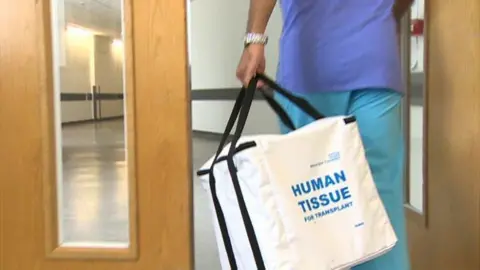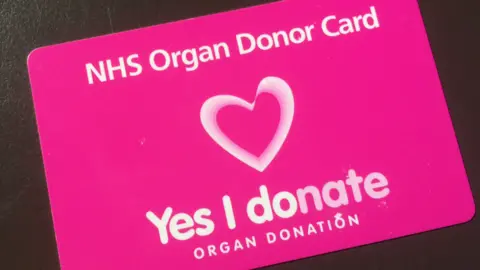Organ donation 'opt-out' law in force from autumn 2020
 BBC
BBCAn "opt-out" system for organ donation in Scotland will come into force in autumn 2020, the Scottish government has announced.
At present, people must "opt in" by registering to donate their organs for transplants after they die.
Under the new law, it will be assumed people are in favour of donation unless they have stated otherwise.
Ministers hope the move will save and improve the lives of people waiting for an organ.
They said it would add to a package of measures already in place which have led to significant increases in donation and transplantation over the last decade.
However, it will not apply to:
- Children under the age of 16
- Adults who lack the capacity to understand the new law (for example those with dementia)
- Those who have lived in Scotland for less than 12 months.
They will only be able to donate it they, or someone on their behalf, explicitly authorises it.

New figures show there were 579 people on the transplant list in Scotland on 31 March this year.
There were more than 2.6 million people (48% of the Scottish population) on the NHS organ donor register on the same date, according to NHS Blood and Transplant.
Since a similar law was introduced in Wales in 2015, the organ donation consent rate has jumped from 58% to 77%.
'Life-changing gift'
Public Health Minister Joe FitzPatrick said it was important that the government did all it could to improve the lives of those on the waiting list.
"Organ and tissue donation can be a life-changing gift," he said.
"Evidence shows that opt-out systems can make a difference as part of a wider package of measures and this act provides further opportunities to both save and improve lives."
The law will be introduced after a 12-month public awareness campaign, which will provide more information about what the changes mean and what choices people will have.
Only about 1% of people die in circumstances where it is possible for their organs to be donated to others, according to Organ Donation Scotland.
They are usually in intensive care and have suffered a severe brain injury or have lost function of the heart and lungs after a cardiac arrest.
